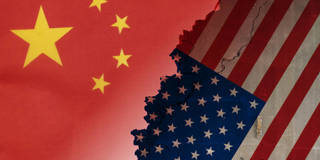WING THYE WOO

Imposing trade restrictions to address national-security concerns is at the heart of today’s heightened tensions between China and the United States. Instead, the two countries should establish new agreements on arms control and industrial policies, which will require rebuilding trust.
KUALA LUMPUR – Tensions between the United States and China have reached such a high level that the G7, led by the US, recently changed its objective in its relations with China from “decoupling” to “de-risking.” But the reality is that de-risking, like decoupling, requires the participation of both sides and a common agenda. And while the objective of de-risking may be clear, its substance is not, besides keeping communication channels open.
The first step toward a productive dialogue is to recognize that the interaction among three types of competition – trade, technology, and geostrategy – is driving the spike in US-China tensions. To stop this vicious cycle, these three types of competition must be decoupled, and, to the extent possible, the policy instruments applied to each segment must be kept distinct.
Weaponizing trade policy to address matters of national security, for example, has only reduced mutual benefits from the economic relationship without easing geostrategic tensions. China banned rare-earth exports to Japan in 2010 over a territorial dispute and restricted a range of imports from Australia in 2020 after the country called for an independent investigation into the origins of COVID-19. Yet such retaliation was ultimately ineffective.
No comments:
Post a Comment